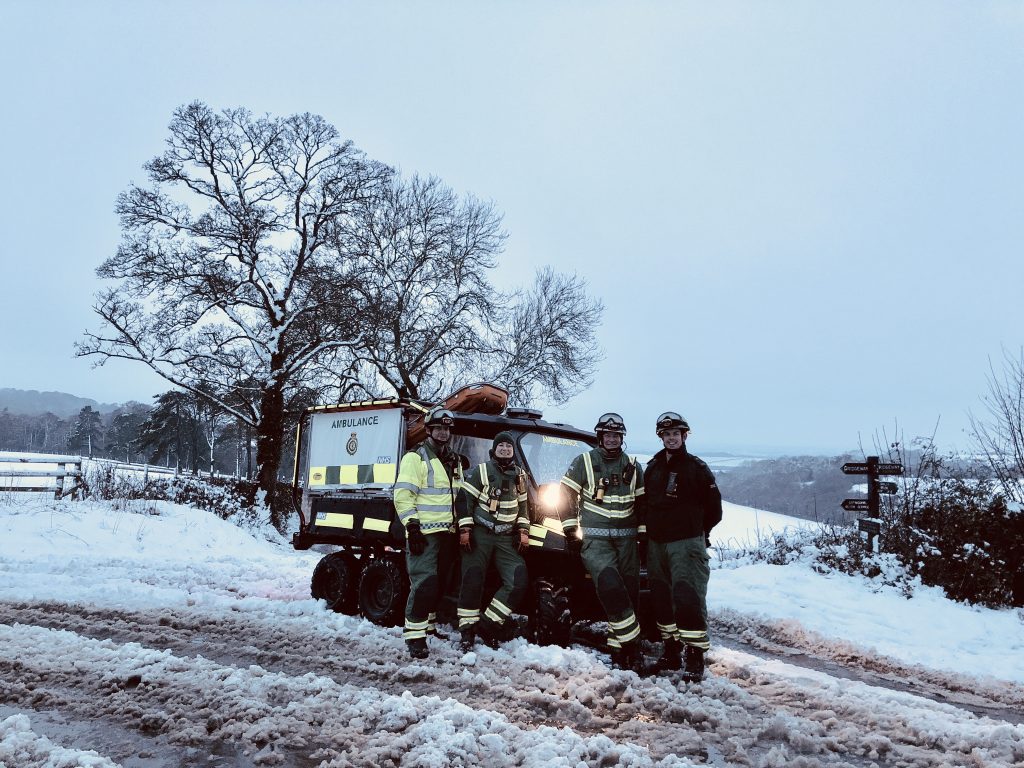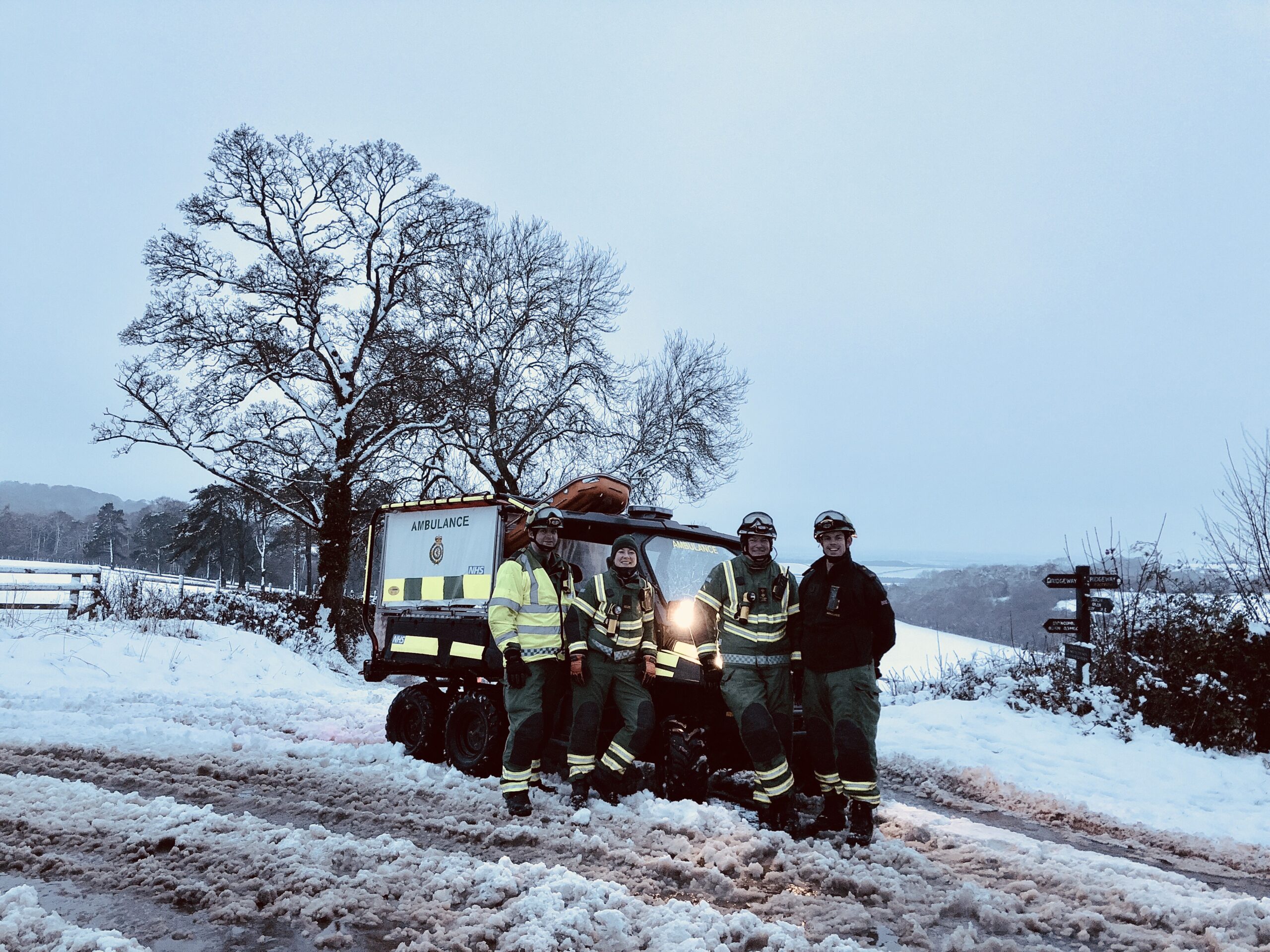Health and social care professionals from across the Oxfordshire system which includes hospitals, GPs, social services, ambulance services, mental health services and charities will be working together this winter to deliver responsive and joined-up services throughout the season.

By building on last year’s collaborative working, the system-wide team will help provide safe, effective, and sustainable care for people across Oxfordshire. The team will also work to improve quality and performance of emergency and urgent care in the area.
Winter is a high-pressure season for health and social care services, with the colder temperatures and harsher weather conditions leading to increased demands on GPs and Emergency Departments as flu season begins.
Sam Foster, Chief Nursing Officer at Oxford University Hospitals NHS Foundation Trust, said: “The team’s priority is to ensure that people who need medical treatment are able to access services to get the care they need.
“When people no longer need hospital treatment, the team are committed to make sure they’re looked after in the most appropriate place, whether that be at home or in the community. Staying in hospital for longer than necessary has a really negative effect on people’s health, and getting them home well and ready is a huge part of what the team will do.”
People are urged to have a winter plan for themselves and their family so that they know what they need to do to keep as well as possible, what they can do if they become unwell, and how they can look after their elderly neighbours who may not be able to look after themselves.
Dr Kiren Collison, Clinical Chair of the Oxfordshire Clinical Commissioning Group, said: “To help protect people this winter, those ‘at risk’ should have a free NHS flu vaccination. This includes people over 65, people with a long-term condition such as diabetes or asthma, pregnant women, and children aged two or three who will be offered a nasal spray injection by their GP.”
GP practices will contact those patients eligible for the free flu jab to attend vaccination clinics which are taking place over the next few months in Oxfordshire. The flu vaccine is an effective way for people to keep well and healthy over winter.
If people are worried about an urgent medical concern over the winter period, they are advised to call 111 to speak to fully trained advisors available 24 hours a day, seven days a week. They can put people straight through to relevant healthcare professionals, including nurses, emergency dentists, or GPs, depending on the situation. There’s also the option of NHS 111 online (111.nhs.uk) to access medical advice on phones, tablets, and laptops.
An important part of the team’s plan is making sure that people are cared for outside of hospital, too.
Karen Fuller, Adult Social Care Service Manager at Oxfordshire County Council, said: “To keep people safe and well over the winter period, it is important that we work together as a system to provide the right support at the right time. This is a key system priority across Oxfordshire.”
Another angle the team will be focussing on is the importance of mental health over the winter.
Rob Bale, Clinical Director for Oxfordshire Mental Health Services at Oxford Health NHS Foundation Trust, said: “Our physical and mental health are, of course, linked. We know people with long term physical health conditions are more likely to experience everyday mental health problems like depression, anxiety and stress.
“On the other hand people, with a long term mental health condition, dementia, or a learning difficulty are more likely to experience poor physical health. It’s important we take a moment to support frail and vulnerable relatives, friends, and neighbours and get help for our mental health – just like we would for our physical health. People can get in touch with their GP or self-refer to Oxfordshire talking therapy service TalkingSpace Plus. People experiencing mental health crisis can self-refer to Safe Haven, an alternative to Emergency Departments offering care and support in a calm non-clinical environment on Fridays, Saturdays, Sundays, and Mondays from 6pm to 10pm.”
The team also includes South Central Ambulance Service (SCAS), who have developed a range of new urgent care pathways with colleagues from across Oxfordshire’s health and social care providers to ensure more patients get direct access to the appropriate care and specialists they need, rather than be taken initially to an Emergency Department at either the John Radcliffe or Horton Hospitals.
Ross Cornett, Head of Operations (Oxfordshire) at SCAS, said: “The new urgent care pathways mean that our ambulance staff on the road have direct access to specialists and clinical support, some of which is available 24/7. By working together more efficiently with our partners, we can avoid admission to hospital at all for some patients who previously would have been taken in, as well as bypass Emergency Departments for some patients for whom it has already been identified which specialist consultant or service they need.
“These new developments will be particularly beneficial this winter as this time of year always sees extra demand right across the NHS and social care system with colleagues in emergency departments often under the most pressure. We can now ensure the right treatment in the right place for more patients, with fewer ambulances taking the more traditional approach to taking the patient to an already busy A&E.”
Ends

